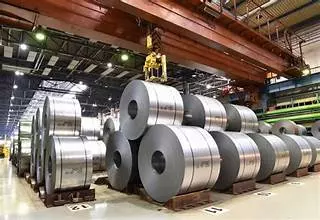Steel with fake BIS certificate getting imported
The steel industry is facing challenges in maintaining quality standards across its global supply chain

Chennai: Imports of low-quality steel from unauthorized factories from China and South East Asia with fake BIS certification are entering into the country. This is posing a challenge to both the quality of goods available in the market as well as domestic manufacturing.
“India is facing a growing problem of substandard imports falsely claiming to have Bureau of Indian Standards (BIS) certification. These low-quality products enter the market with fake BIS labels, misleading consumers and bypassing safety and quality regulations,” said Ajay Srivastava, founder, GTRI.
The steel industry is facing challenges in maintaining quality standards across its global supply chain. Some importers falsely label uncertified steel grades as BIS-approved, compromising quality in critical areas like construction and infrastructure.
A Chinese company, Guangdong Runxin Industrial Investment, which manufactures stainless steel cold-rolled coils and sheets, had alerted Indian Customs in September 2024 that certain importers and Chinese exporters were misusing its BIS certificate to export non-certified steel grades in lieu of the certain grades for which their company had been certified to export to India. To prevent this, the company launched an online verification platform - www.runxinbis.com - and urged customs officials to verify shipments before clearing them.
A similar issue has been reported with the BIS certificate of Inox Hoah Binh Joint Stock Company, a Vietnamese firm which was recently granted BIS license for a certain grade of stainless steel. This certificate has been reportedly used fraudulently without adequate verification at Customs, by importers to clear cheaper goods procured from unlicensed factories.
“This not only puts public safety at risk but also harms domestic manufacturers who follow strict quality norms. The influx of such goods can weaken trust in certified products and create unfair competition for businesses complying with BIS standards,” said GTRI.
